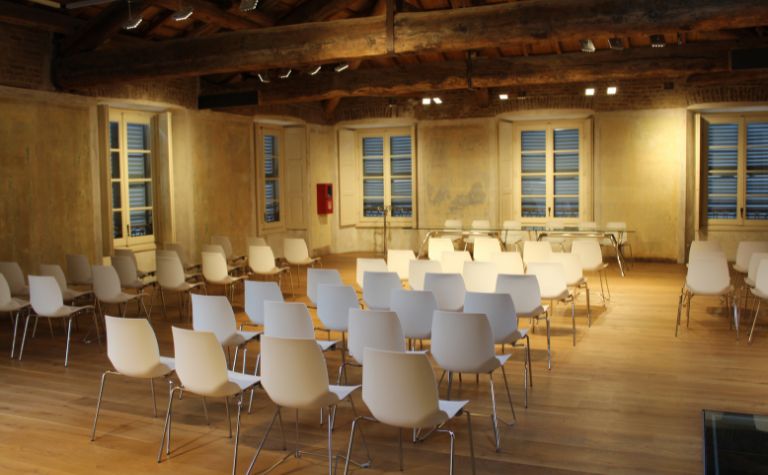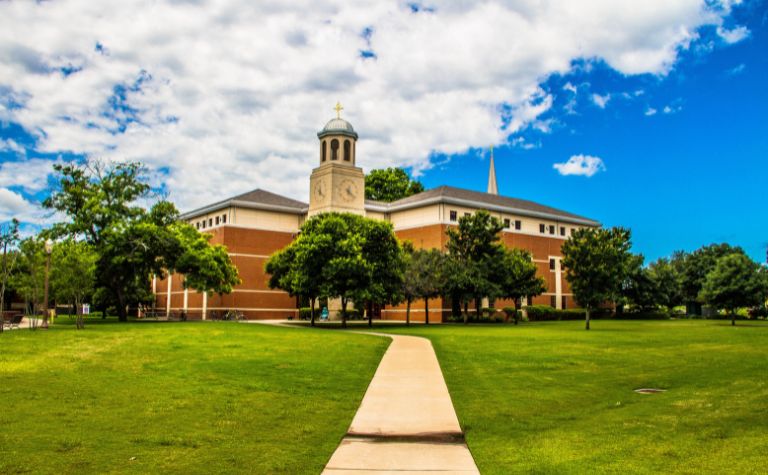Fuller Theological Seminary stands as a prominent institution in the world of theological education, drawing students from various backgrounds and regions to its halls.
With its rich history and commitment to merging academic scholarship with core Christian convictions, it plays a significant role in shaping thinkers, leaders, and ministers.
To understand the impact and reach of this seminary, it’s essential to grasp its foundational beliefs and theological stances.
This article seeks to shed light on what Fuller Theological Seminary believes, exploring its core convictions, approaches to contemporary issues, and its global orientation in the theological realm.

Historical Background and Foundational Vision
Fuller Theological Seminary was established in 1947 in Pasadena, California, born out of a vision to create an institution that blended rigorous academic pursuit with evangelical convictions.
Charles E. Fuller, a renowned radio evangelist known for “The Old Fashioned Revival Hour,” and Harold Ockenga, a key figure in the evangelical movement of the time, were the driving forces behind its inception.
Their aim was to respond to the pressing challenges of their era without compromising the foundational principles of Christianity.
As the seminary grew, so did its influence, not just in the United States but also on the global theological stage.
The foundational vision was to produce graduates who were deeply rooted in traditional Christian beliefs, yet equipped to engage meaningfully with a changing world.
This dual emphasis—on core Christian tenets and contemporary engagement—became a defining feature of the Fuller experience.
Over the decades, Fuller expanded its academic offerings, introducing new programs and courses that reflected both its evangelical heritage and its commitment to address emerging theological and societal questions.
The institution’s guiding vision has always been to remain anchored in Scripture while fostering an environment of inquiry, dialogue, and application.

Core Theological Commitments
At the heart of Fuller Theological Seminary’s educational philosophy lie several core theological commitments.
These commitments have not only informed the curriculum but have also shaped the character and direction of the institution over the years.
One of Fuller’s primary commitments is to the authority and inspiration of Scripture.
The seminary upholds the belief that the Bible is the inspired Word of God and serves as the primary source of truth and guidance for believers.
This conviction underscores the seminary’s approach to biblical studies, ensuring that the text is treated with reverence and scholarly integrity.
The nature of God, Christ, and the Holy Spirit also forms a central part of Fuller’s theological framework.
The seminary affirms the traditional Christian understanding of the Trinity: one God in three persons.
The role of Christ as the Savior and the redemptive work accomplished through His life, death, and resurrection are central tenets.
Concurrently, the Holy Spirit’s work in empowering believers, guiding the Church, and bringing about spiritual transformation is emphasized.
Additionally, Fuller’s understanding of salvation aligns with the evangelical view that it is a gift from God, granted through faith in Jesus Christ.
This grace-based perspective on salvation underpins much of the seminary’s teaching on Christian living and ministry.
The Church, seen as the body of Christ on earth, is another crucial component of Fuller’s theological outlook.
The seminary believes in the importance of the Church’s role in discipleship, community, and as a beacon of hope and truth in the world.
In sum, Fuller Theological Seminary’s core theological commitments revolve around foundational Christian doctrines.
These commitments serve as the bedrock upon which the institution builds its teachings, preparing students to engage the world with deep-rooted faith and theological clarity.

Integration of Theology with Contemporary Issues
Fuller Theological Seminary has consistently shown a dedication to bridging the gap between traditional theological teachings and the pressing questions of the contemporary world.
Recognizing the evolving challenges and opportunities of modern society, the seminary seeks to integrate these issues with sound theological understanding.
One area where this integration is evident is in Fuller’s approach to societal concerns.
Whether addressing topics like social justice, environmental sustainability, or technological advancements, the seminary brings a theological lens to these discussions, helping students understand and navigate these areas from a Christian perspective.
Additionally, Fuller’s commitment to interdisciplinary studies allows students to see the intersections of theology with other fields of knowledge.
For instance, the integration of psychology and theology offers a holistic understanding of human nature and behavior.
By exploring these overlaps, students are better equipped to address the complexities of human experience and societal dynamics.
Cultural engagement is another arena where Fuller’s integration efforts shine.
In an increasingly globalized world, the seminary promotes a thoughtful engagement with various cultures, traditions, and worldviews.
This is not just about understanding differences but about discerning how the timeless truths of Christianity can be communicated and lived out in varied cultural contexts.
Lastly, the seminary’s curriculum reflects its commitment to integrating theology with contemporary challenges.
Courses are designed to be both academically rigorous and relevant, encouraging students to think critically and apply their learning in practical, real-world scenarios.
Missional and Global Orientation
Fuller Theological Seminary’s perspective is not confined to its home base in Pasadena, California.
From its inception, the seminary has exhibited a strong missional drive and a global outlook.
This orientation is evident in various facets of its educational philosophy and institutional initiatives.
Central to Fuller’s ethos is the belief that the message of the Gospel has a universal relevance and applicability.
This conviction propels its commitment to training students for missional work, both within their local communities and abroad.
The seminary emphasizes the importance of understanding the cultural, historical, and social dynamics of different regions to effectively communicate and live out the Christian faith.
The global orientation also manifests in the seminary’s student body.
With students coming from various parts of the world, there’s a rich tapestry of experiences, perspectives, and traditions.
This international blend fosters an environment of mutual learning and respect, where insights from different cultures can inform and enrich theological discussions.
Moreover, Fuller has established partnerships with theological institutions and organizations across the globe.
These collaborations aim to facilitate academic exchanges, joint research projects, and shared resources.
Such partnerships broaden the seminary’s global footprint and ensure that its teachings and resources are accessible to a wider audience.
In addition, Fuller continually adapts its curriculum to address global theological trends and challenges.
This ensures that students are grounded in traditional Christian beliefs and attuned to the nuances and needs of global Christianity.
In essence, Fuller Theological Seminary’s missional and global orientation underscores its dedication to serving the worldwide Christian community.
By maintaining this focus, the seminary equips its students to be effective ambassadors of the Gospel, regardless of geographical or cultural boundaries.
Recent Posts
David Jeremiah, a renowned pastor, author, and speaker, has captivated the hearts of many with his compelling sermons. His messages resonate deeply with diverse audiences, leaving an enduring...
Tim Keller, a distinguished pastor, theologian, and author, has garnered a devoted following through the profound impact of his sermons. In this article, we will explore seven compelling reasons...
